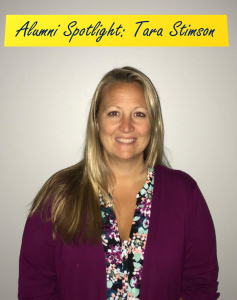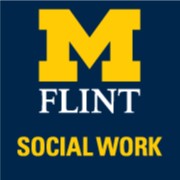
“I was seeking a field that my values were not only personal but aligned professionally and matched my personal traits and characteristics such as being empathetic, having compassion, respect for others, and the ability to adapt.”
Interview with Tara Stimson, BSW, CCP Social Worker/Social-Emotional Specialist for Children Birth-Five
What drew you to social work?
While mentoring in a previous career path (Interpreting for the Deaf), I began to become more aware of individuals experiencing extreme hardships, inequalities, and injustices. The individuals affected by these challenges were not only young to late adults but children of all ages. This was very unsettling for me, it challenged my beliefs and made me look deep into my values. Being a person that values relationships, human dignity of others, and equality I knew that I wanted to seek options of how to produce change. I was searching for knowledge of what more I could contribute to benefit another person. In the attempt to approach/question these injustices and inequalities, seeking answers to many questions, I was lead down the path of furthering my education.
That educational path lead me to field of Social Work at the University of Michigan-Flint. Furthering my education in a field that did not shy away from social injustices but approached the difficult conversations. I was seeking a field that my values were not only personal but aligned professionally and matched my personal traits and characteristics such as being empathetic, having compassion, respect for others, and the ability to adapt. This journey did not come without some reservations or sacrifices as I was a nontraditional student. A married, mother of 4 very active children, is anything but traditional.
Please share about your experience at UM-Flint.
The Social Work Program at the University of Michigan-Flint allowed for a more in-depth study into the underlying history of systems and structures that breathed life into social injustices that continue to occur. The program allowed for independent and group studies of personal interest while challenging you to step outside of your comfort zone. Along with challenging you to recognize and address your own biases, they educate you with tools and skills to approach these difficult topics while welcoming opportunities to build relationships within the community. A favorite saying of mine that Professor Womack states “become comfortable with the uncomfortable”.
What would you say to prospective students?
Building relationships within your cohort (classmates, social work club, mentor, etc.,) allows for a positive experience while in the midst of frantically meeting deadlines for assignments. Developing these relationships begins with you, personally, committing the time and effort of providing a positive environment for relationships to build. Be accountable to yourself and others. Take charge of your own learning and continuously seek opportunities for personal growth. Not only building relationships within the cohort but building professional relationships with your mentor and/or professors. These are friendships/relationships that are built are for longevity.
Please share about life after graduation.
Life after graduation from the University of Michigan-Flint, has been very rewarding with multiple employment opportunities. I’ve been celebrating many of our cohort that moved on to seek their MSW, while others have welcomed new careers. For myself, I have accepted the position as the CCP Social Worker/Social-Emotional Specialist for Children Birth-Five at GISD-Center for Countywide Programs. I am working with children exhibiting challenging behaviors while recognizing and acknowledging risk-factors, trauma exposure, social-emotional needs, and Infant Mental Health.
The ability to establish community through relationship building is one of the many perks of my profession. Building relationships with the students, family members, teachers, classroom support specialist, and other professionals are extremely vital when collaborating with a team to provide best practice for student success. Having built those relationships allow for one cohesive team.
